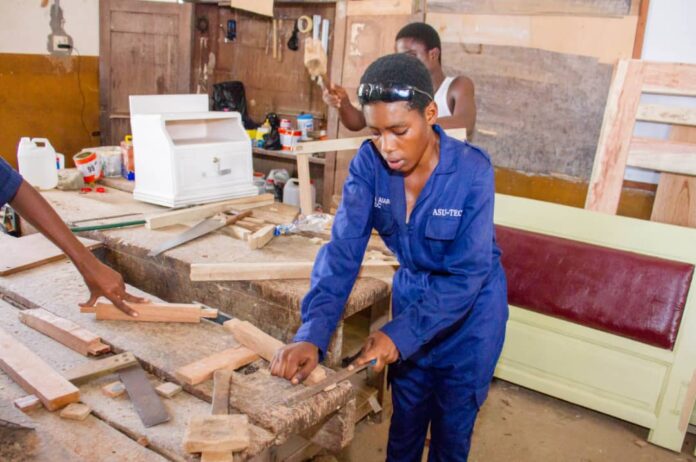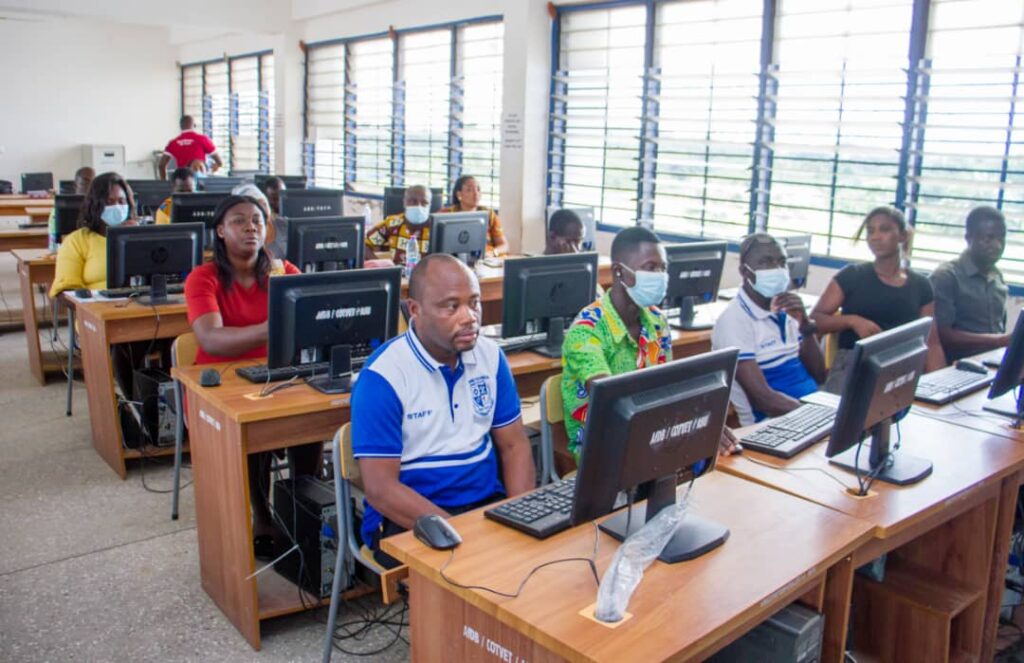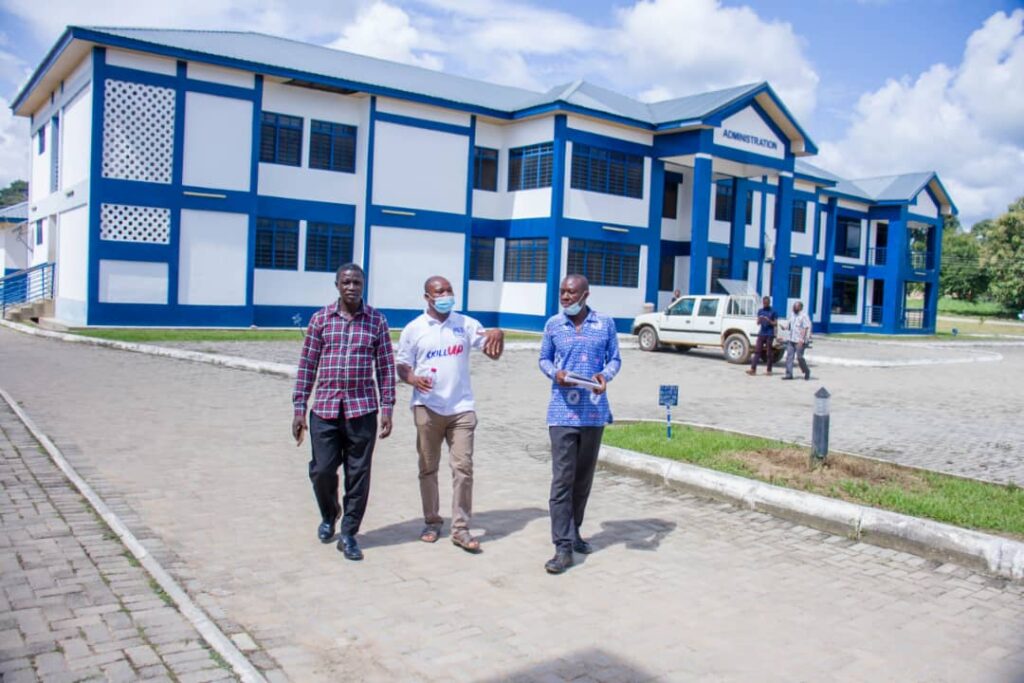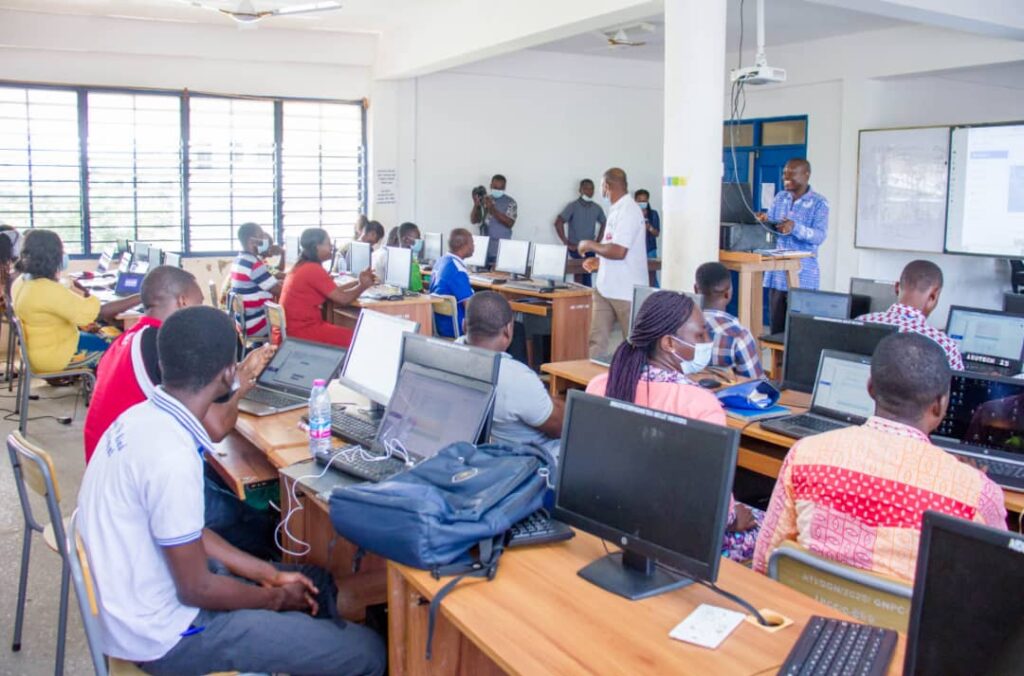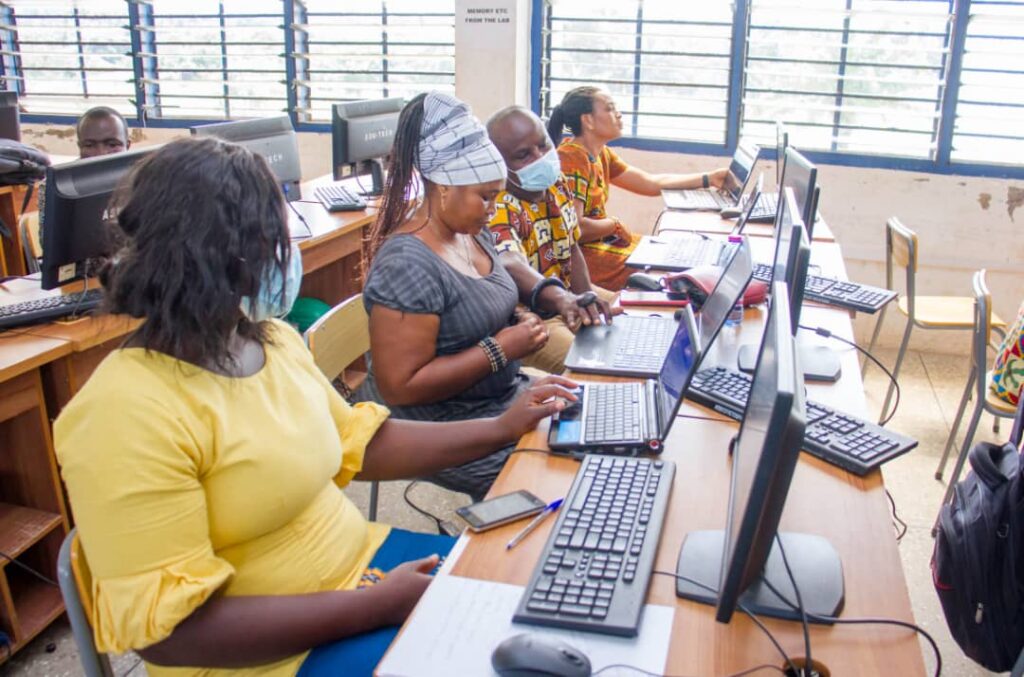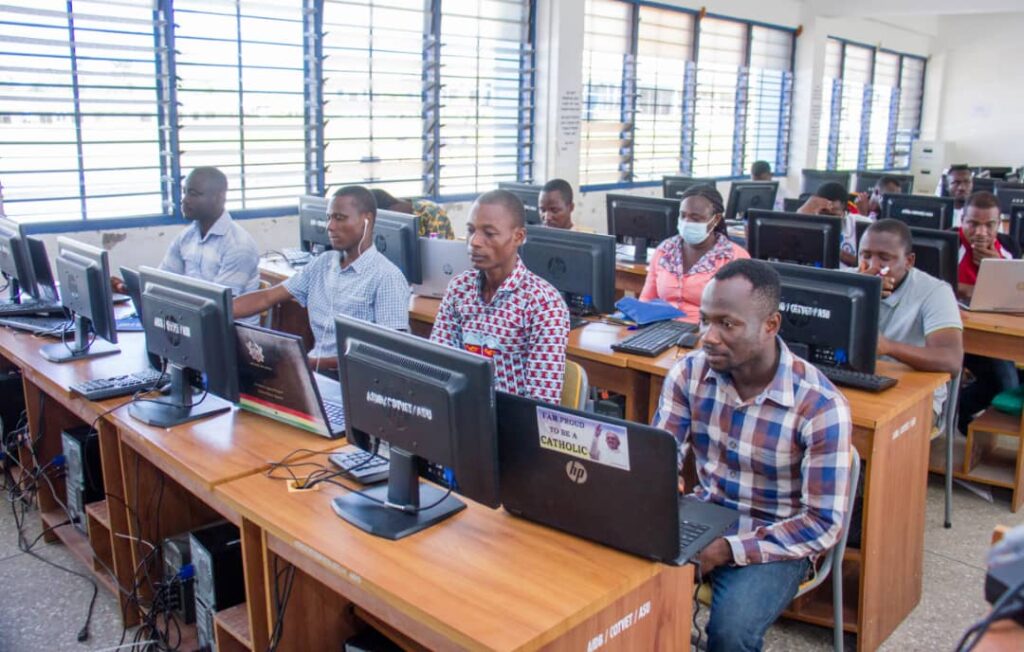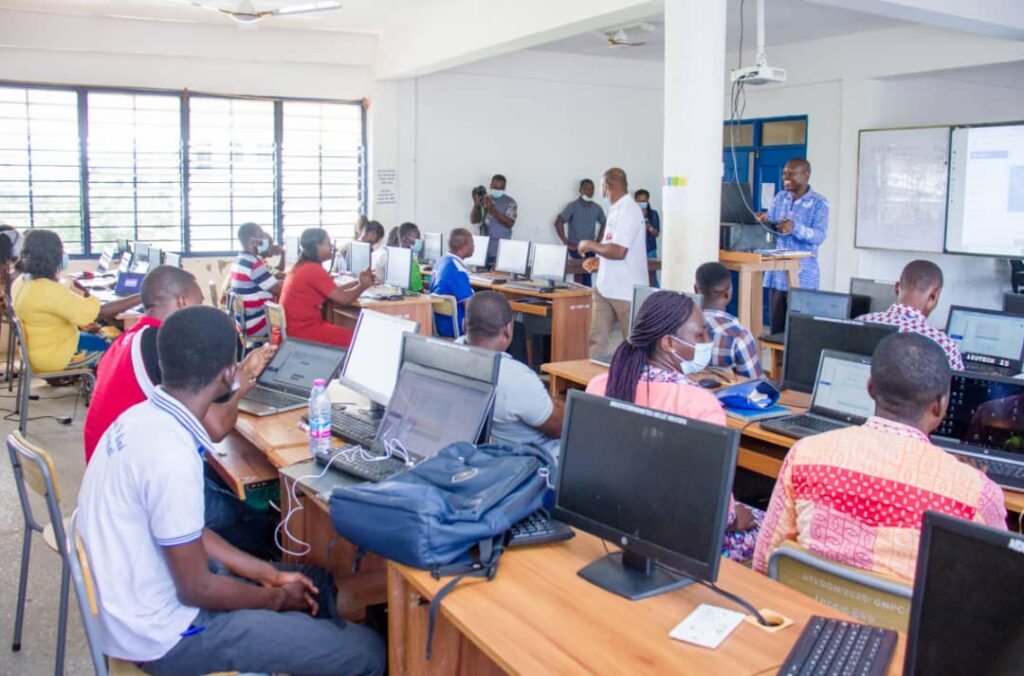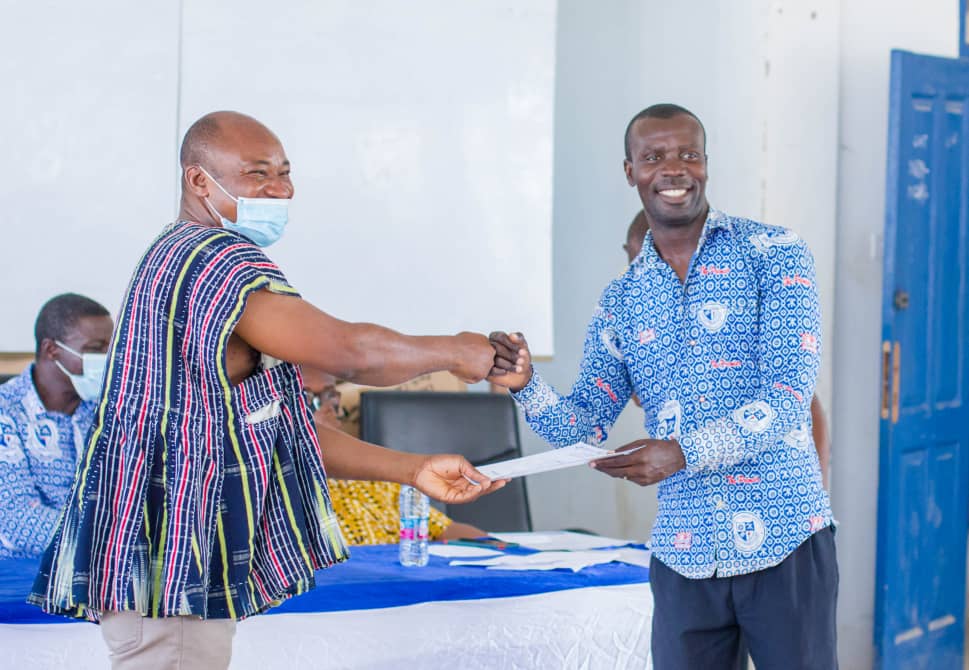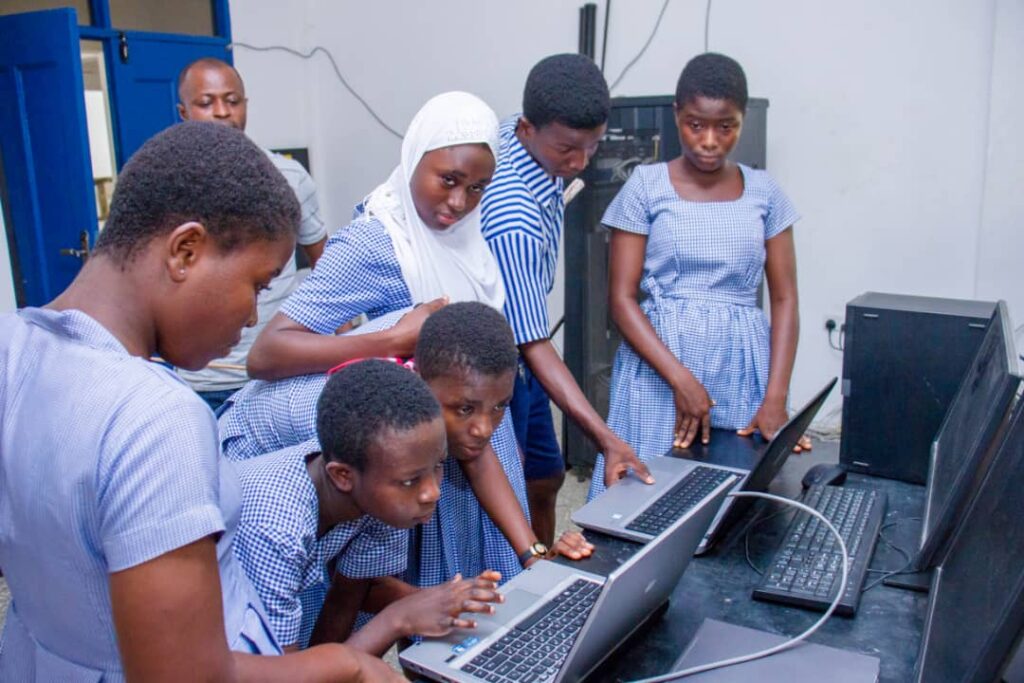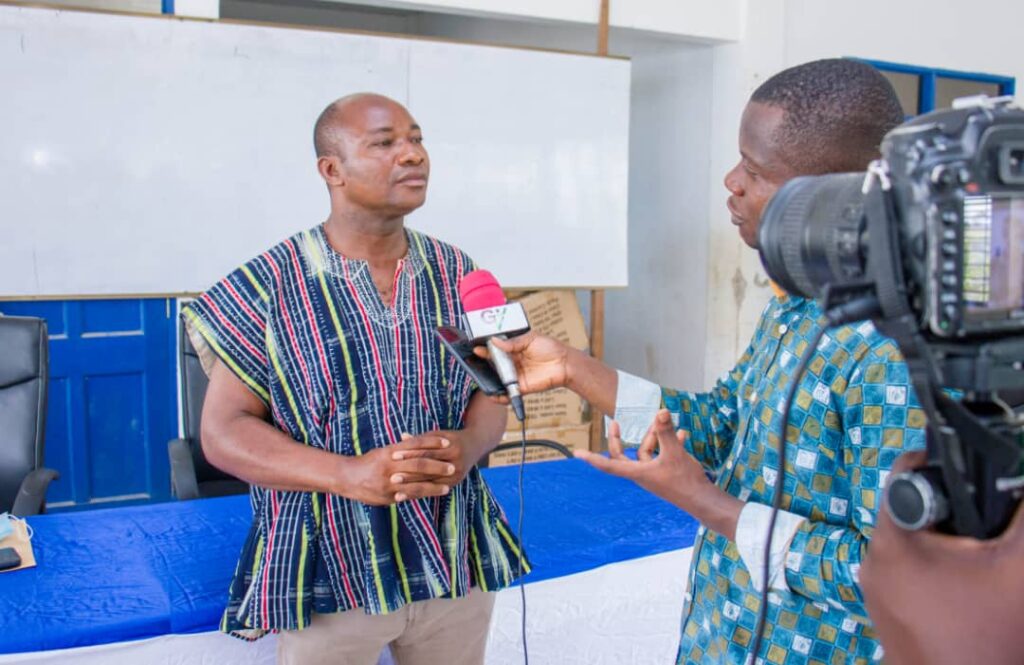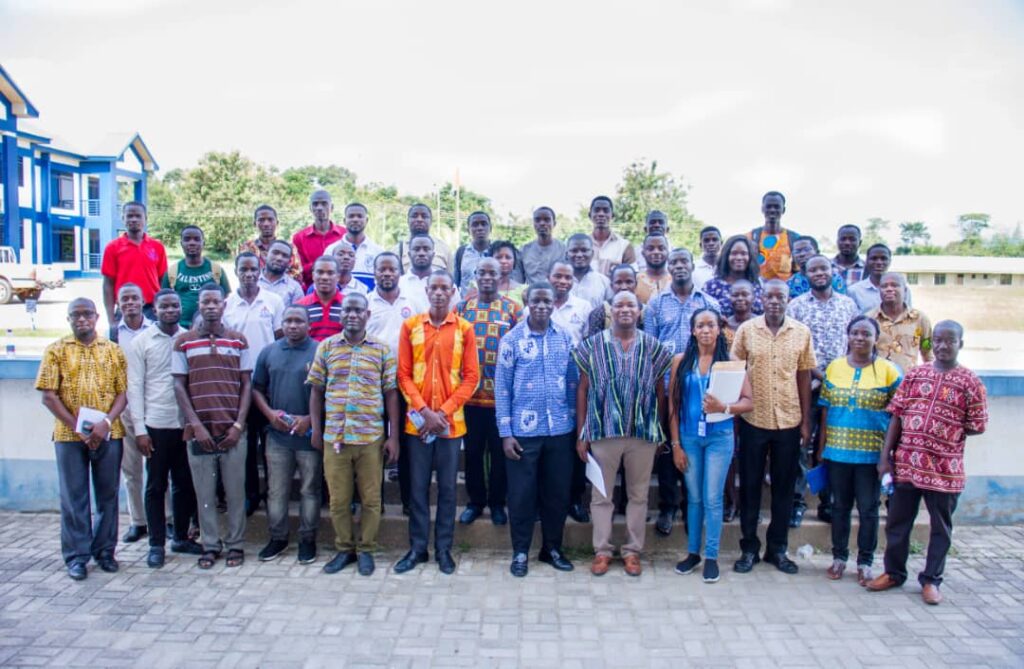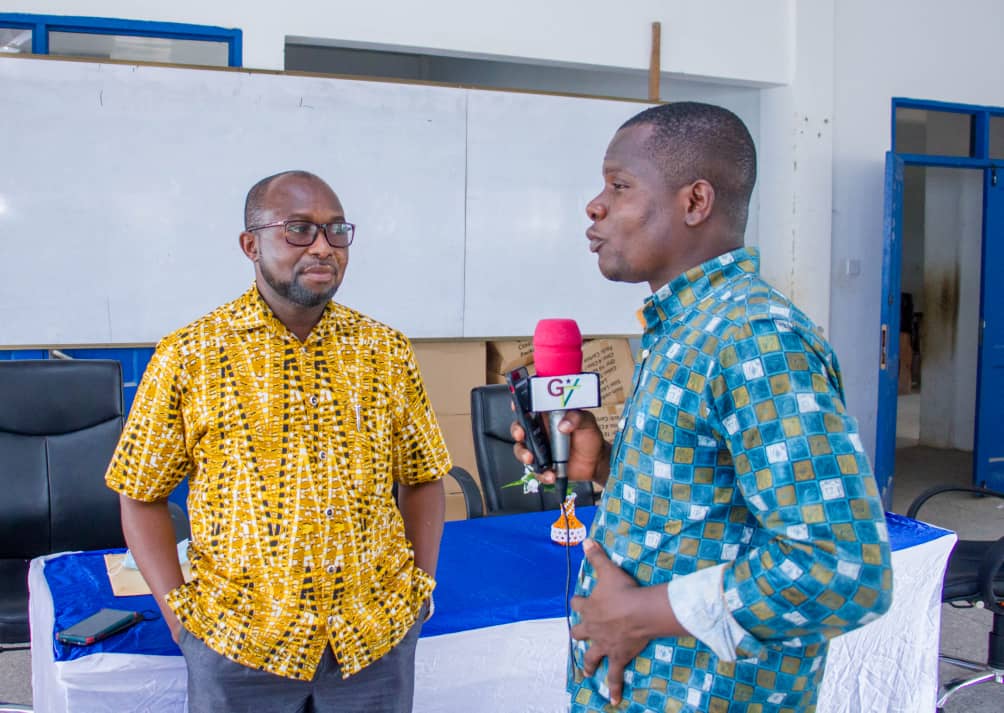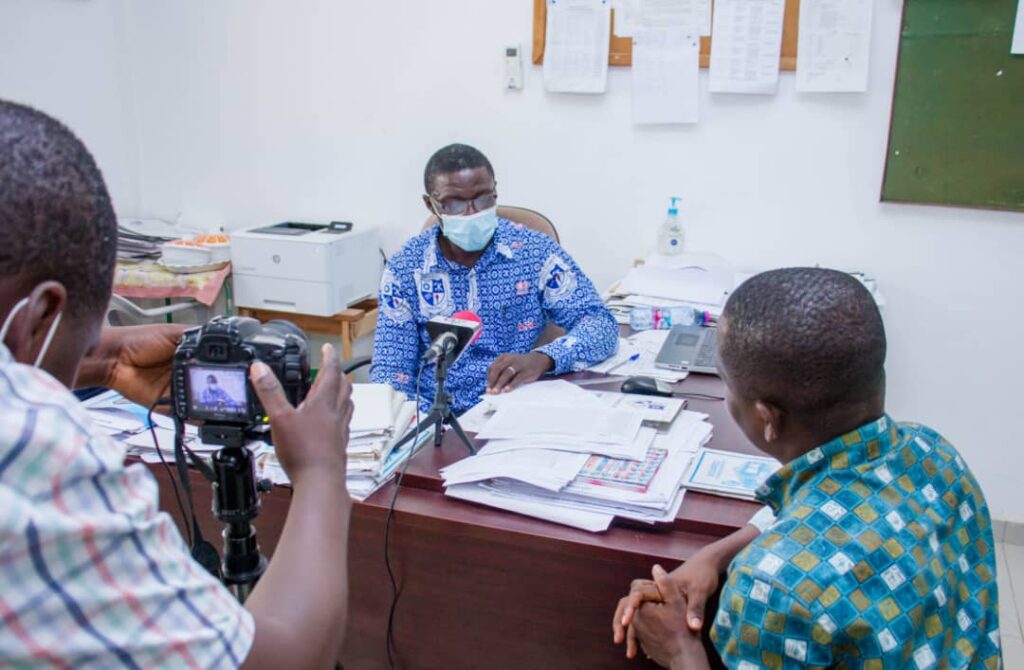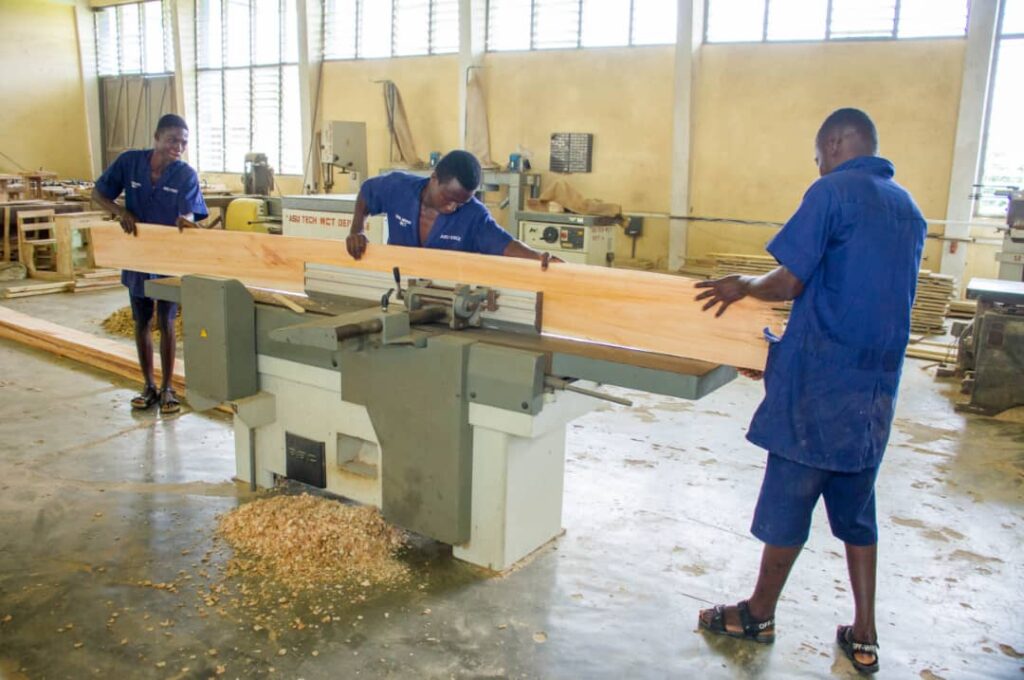Out of One Hundred and Eight (108) tutors at Asuasi Technical Institute in the Central Region, One Hundred and two (102) tutors have trained and graduated from the ILO Skill Up project.
The ILO the SKILL UP Ghana Project is a training program that was set up to provide technical support towards piloting the SSCs in Ghana through the Programme Cooperation Agreement for 2018-19 signed between the ILO and the Government of Norway. The objective of SKILL UP Ghana is to ultimately contribute to achieving “More and better jobs for inclusive growth and improved youth employment prospects”.
Speaking at the graduation ceremony of Training of Tutors of Asuansi Technical Institute today in the Central Region, Mr. Adetor Frank Kwasi, National Project Coordinator, SKILL UP Ghana Project – International Labour Organization said, the increasing use of digital technologies is also driving change in the tools and modalities of learning, assessment and certification along with the provision of career guidance, job matching and labour market services.
In this context, “National Technical and Vocational Education and Training (TVET) and skills systems have both external and internal pressures. First, they have to respond to the external demand for new skills from our increasingly digital society and enterprises, and secondly, as other sectors do, they themselves have to engage in digital transformation and the challenges this presents to their institutions, staff and learners”, he stated.
According to Mr Adetor Frank Kwasi, TVET and skills systems have a special obligation to ensure that in the process of digitalization, the uneven access to equipment, tools and skills that exist cannot be allowed to increase the marginalization of disadvantaged groups and to widen the digital divide.
The considerable challenges presented by the COVID-19 pandemic have brought the issue of digitalization to the fore. All forms of education and training have been affected, particularly in low-income countries and amongst the most vulnerable social groups.
As a result of the great efforts of public authorities, the private sector, and civil society, innovative solutions were developed as the emergency response evolved.
From these arrangements have emerged promising practices and the development of more flexible learning and assessment options, including high-tech, low-tech, and even no-tech solutions, dictated by local contexts and developed as the crisis unfolded.
Additionally, the impact of COVID19 on teaching and learning in Ghana is well recognized but represents an opportunity for the implementation of new approaches to teaching and learning in Ghana’s TVET institutions. The ILO/SKILL UP Ghana project supported the training of 10 tutors from selected TVET at the Digitization of TVET programme organized by ITC/ILO – Turin from July 6-31, 2020 and October 5 – 30, 2020.
Emphasising that the ILO, through CTVET will support the Asuansi Technical Institute to develop a guideline for digitalization which will serve as a blueprint for replication in other technical institutes.
Mr. Adetor Frank Kwasi conconcluding commended the hard-working and dedicated Principal, Vice Principals and Tutors of the Asuansi Technical Institute for embracing this new approach to teaching and learning and encouraging them to sustain this arrangement. Encouraging the students to also apply themselves to this new approach to teaching and learning and optimize all the direct and associated benefits.
About Skill Up Training
The Minister of Education met with the ILO in April 2017 and asked for ILO’s support to a broad TVET reform, including streamlining the system’s governance, and building on and strengthening the work of a few sector committees established under the Council for Technical and Vocational Education and Training (COTVET) now Commission for Technical and Vocational Education and Training (CTVET). In September 2017, CTVET requested ILO’s support to establish Sectoral Skills Councils (SSCs). In 2018, the overall coordination of the country’s TVET system is centred under COTVET.
The Council elaborated a strategic plan to revitalize this system, the 2018-2022 Strategic Plan for TVET Transformation. Its priority action under objective number one, governance and management of TVET, is the establishment of Sector Skills Councils (SSCs) also known as Sector Skills Bodies (SSBs)
Through collaboration with CTVET and GIZ, the ILO provided technical support towards the development of the framework for establishing SSBs in Ghana. The framework prescribed among others the terms of reference and membership of the SSBs. This framework has been used to successfully pilot the establishment and operationalization of SSBs for the agriculture, construction and tourism & hospitality sectors in 2019. Further to the successful pilot, the framework has been used by CTVET to set up SSBs for 12 out of the 22 targeted sectors in Ghana.
Using the ILO’s tool of Skills for Trade and Economic Diversification (STED), the SKILL UP project has supported the development of Skills Strategies for the agriculture, construction, tourism & hospitality, Oil & Gas and ICT sectors.
The Asuansi Technical Institute, supported by these tutors and the ILO, is leading the digitalisation of TVET in Ghana by expanding training to its tutors on the digitization of teaching and learning. The training of tutors, which commenced on 7 September 2021 was completed on 28 October 2021.
This closing ceremony including the delivery of certificates of participation being held today 29 October 2021, marks the beginning of a new journey of digitizing teaching and learning in this school.
A total of 80 tutors have benefited from this training which will ultimately benefit more than 2000 students. All teaching and learning materials have been uploaded on the school’s e-learning platform to be used by tutors and students.
Theophilus Tetteh Zogbla, Deputy Director, Director, Standards and Curriculum Development, Commission For TVET said, the government focus is really to skill up the youths to address the problem of unemployment in the country.
“The focus of this government is to provide support for TVET in order to opportunity for the young men who are interested in TVET to learn skills. It is another strategy to motivate the youth to go in for technical education to acquire skills for jobs, the government is doing so well. The government is doing tremendously well on the front of TVET”.
He said, due to the free education policy enrollment in technical and vocational institutes has massively improved hence the negative perception about TVET is gradually decreasing per the number of interventions of guidance and counseling at junior high school to inform them about the opportunity in TVET by the commission of TVET.
He noted that the government has allocated materials for all training schools, which can say is not enough but there is something the government is doing so that the training institutions can get consumable materials to work with.





















